
Maafushi: The Jewel of the Maldives
Maafushi, a gem in the Maldives, offers a unique blend of local culture and tropical beauty. Located in the Kaafu Atoll, this island is known for its crystal-clear waters, white sandy beaches, and vibrant marine life. Unlike other Maldivian islands that cater exclusively to luxury tourism, Maafushi provides a more affordable yet equally enchanting experience, making it accessible to a wider range of travelers. Visitors to Maafushi can indulge in various water activities such as snorkeling, diving, and fishing. The island is surrounded by vibrant coral reefs teeming with colorful fish, making it a paradise for underwater enthusiasts. For those who prefer staying above water, there are plenty of opportunities for sunbathing, beach volleyball, and island hopping. The local culture is another highlight of Maafushi. The island is home to a small but welcoming community, and visitors can experience the Maldivian way of life by exploring local markets, dining at traditional restaurants, and attending cultural events. The island also offers a range of accommodation options, from budget guesthouses to more luxurious resorts, ensuring that every traveler finds their perfect stay.
Local tips in Maafushi
- Respect local customs by dressing modestly when not on the beach.
- Book water activities in advance to ensure availability.
- Take a local ferry to save on transportation costs.
- Try traditional Maldivian dishes like Garudhiya and Mas Huni.
- Visit during the dry season (November to April) for the best weather.
Maafushi: The Jewel of the Maldives
Maafushi, a gem in the Maldives, offers a unique blend of local culture and tropical beauty. Located in the Kaafu Atoll, this island is known for its crystal-clear waters, white sandy beaches, and vibrant marine life. Unlike other Maldivian islands that cater exclusively to luxury tourism, Maafushi provides a more affordable yet equally enchanting experience, making it accessible to a wider range of travelers. Visitors to Maafushi can indulge in various water activities such as snorkeling, diving, and fishing. The island is surrounded by vibrant coral reefs teeming with colorful fish, making it a paradise for underwater enthusiasts. For those who prefer staying above water, there are plenty of opportunities for sunbathing, beach volleyball, and island hopping. The local culture is another highlight of Maafushi. The island is home to a small but welcoming community, and visitors can experience the Maldivian way of life by exploring local markets, dining at traditional restaurants, and attending cultural events. The island also offers a range of accommodation options, from budget guesthouses to more luxurious resorts, ensuring that every traveler finds their perfect stay.
When is the best time to go to Maafushi?
Iconic landmarks you can’t miss
Mr.Octopus - Your holiday Chef
Enjoy diverse cuisines with ocean views at Mr. Octopus in Maafushi. Indian, Italian, European, and Asian dishes served at local prices!
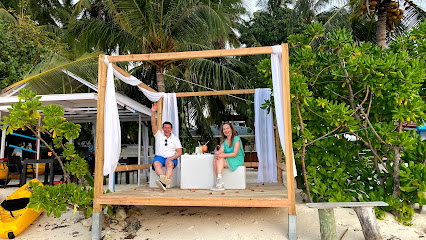
Shadowpalm Tours
Experience the magic of the Maldives with Shadowpalm Tours – your ultimate guide to adventure and exploration in paradise.
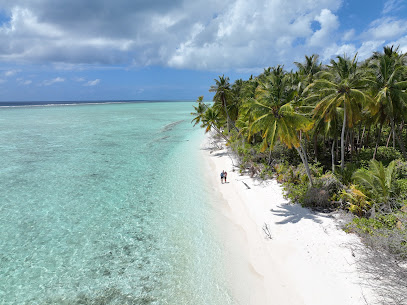
iCom Tours
Discover the breathtaking beauty of the Maldives with iCom Tours - your gateway to unforgettable adventures and sustainable travel.
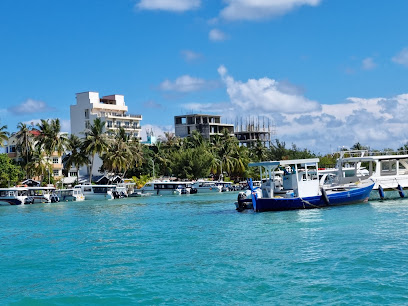
Triton Beach Hotel & Spa
Experience the Maldives on a budget at Triton Beach Hotel & Spa, Maafushi. Beachfront bliss, island adventures, and local charm await!
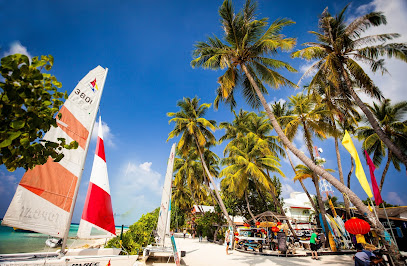
Crystal Sands
Experience the beauty of Maafushi Island at Crystal Sands: Modern comfort, stunning views, and easy access to island adventures.

Republic Square
Experience the heart of Malé at Republic Square, a vibrant hub of culture, history, and community in the Maldives.
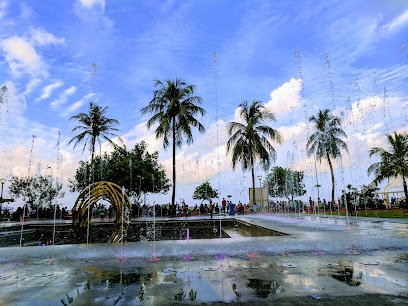
Maafushi Dive & Water Sports.
Explore the underwater wonders of the Maldives with Maafushi Dive & Water Sports: diving, freediving, and thrilling water adventures.
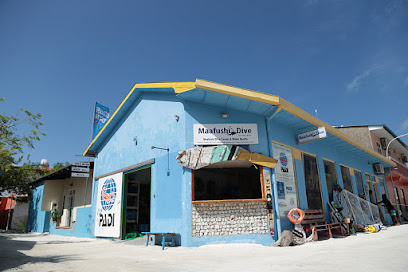
Fine Bake By Suzy
Indulge in delightful cakes and pastries at Maafushi's favorite bakery, Fine Bake By Suzy, where sweet treats meet affordability.
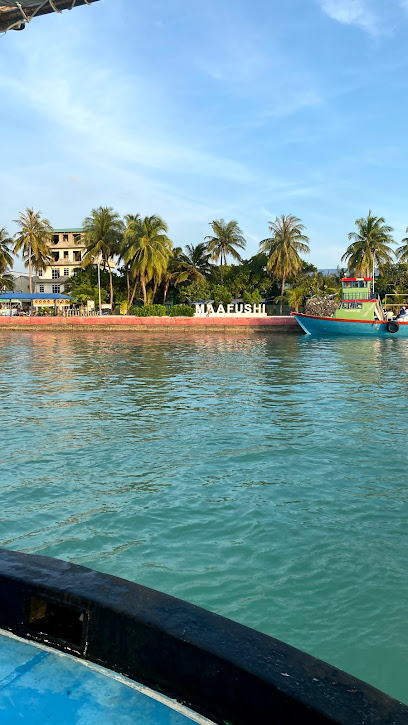
Tsunami Monument
A solemn memorial in Malé honoring the victims of the 2004 tsunami and symbolizing Maldivian resilience.
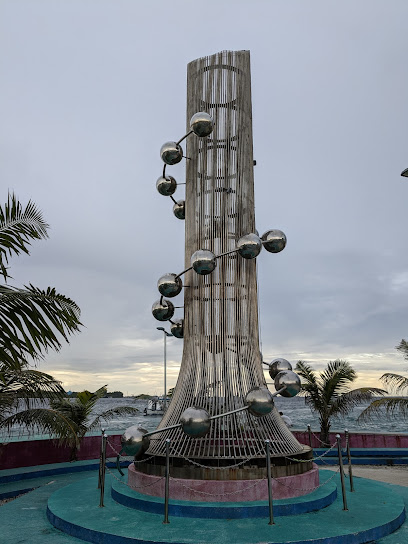
Kaani Dive Club
Discover the Maldives' underwater paradise with Kaani Dive Club: Expert instruction, stunning dive sites, and unforgettable marine encounters.
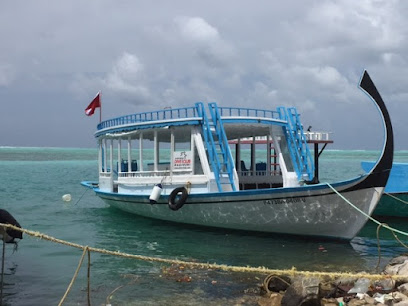
Palm Cafe
Relax and refresh at Palm Cafe in Maafushi, offering beachfront views, cool drinks, and a laid-back island vibe.
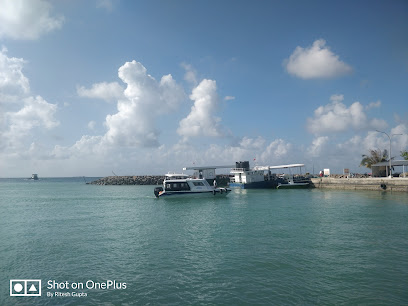
Velaa Trips
Discover the best of the Maldives with Velaa Trips, where unforgettable adventures await in the stunning island paradise of Maafushi.
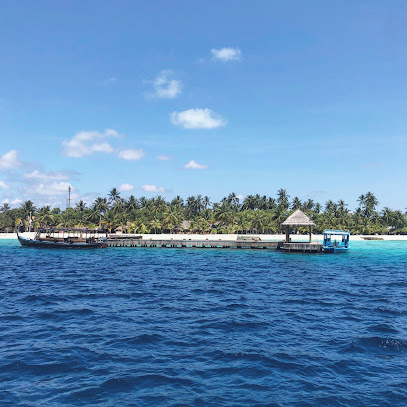
Stingray Cafe
Enjoy fresh flavors and a relaxed beachfront atmosphere at Stingray Cafe in Maafushi, Maldives.
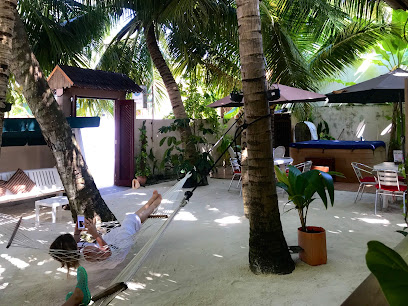
Caviar Cafe and Restaurant
Enjoy European flavors with an island twist at Caviar Cafe & Restaurant in Maafushi, Maldives. Open daily for lunch and dinner!
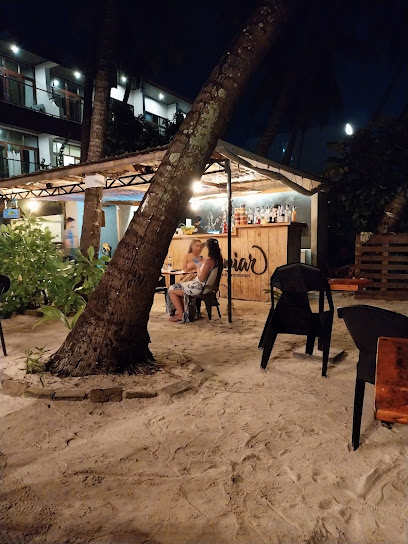
Seven Corals
Experience modern Maldivian hospitality at Seven Corals Guest House, your gateway to affordable adventure on Maafushi Island.

Unmissable attractions to see
Sandbank
Experience the serene beauty of the Sandbank in the Maldives, where pristine sands meet crystal-clear waters for a tranquil escape.
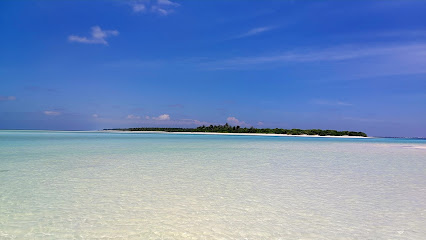
GTF hut
Discover the hidden charm of GTF Hut in Hithadhoo, where nature and culture blend in a serene Maldivian experience.
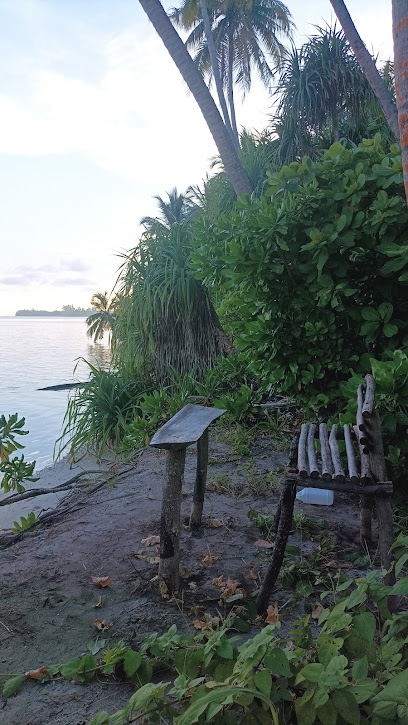
Mendhoo Kulhi
Explore the natural beauty and tranquility of Mendhoo Kulhi in Hithadhoo, Maldives – a perfect spot for relaxation and adventure amidst lush landscapes.
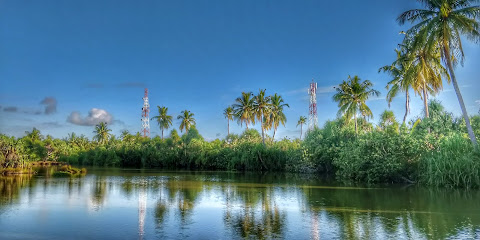
Valhaathere/ salt water lake , protected area
Discover the tranquil beauty of Valhaathere, a stunning saltwater lake in Kunahandhoo, perfect for eco-tourism and nature lovers alike.
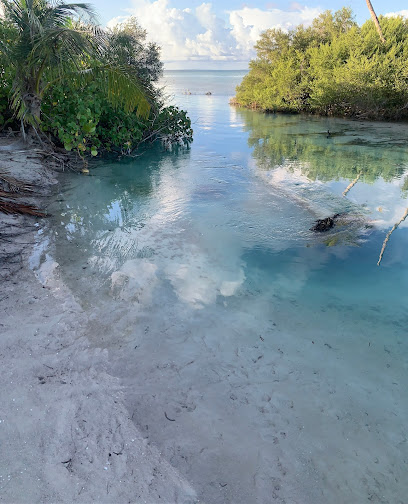
Vasha Vilu
Explore Vasha Vilu in Kunahandhoo, Maldives – a breathtaking tourist attraction known for its stunning beauty and serene atmosphere, perfect for relaxation and adventure.
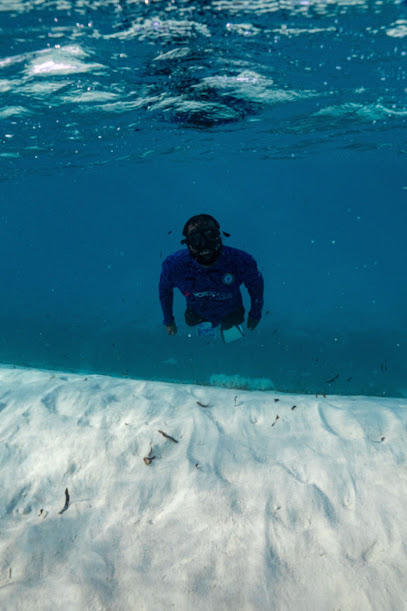
Saathi Happy Place
Experience tranquility and adventure at Saathi Happy Place, a stunning tourist attraction in Gan, offering breathtaking views and local hospitality.
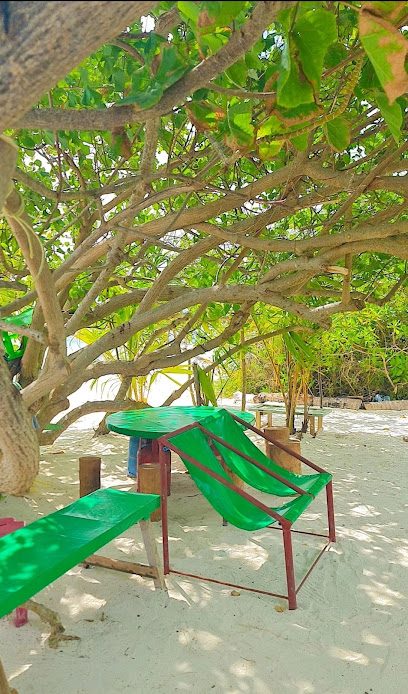
K A S H I D H O O
Discover the untouched beauty and tranquil charm of K A S H I D H O O, a breathtaking Maldivian paradise perfect for relaxation and exploration.
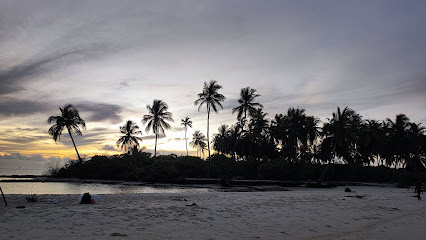
Kunahandhoo Ocean Beach ( AAMAGU )
Experience the serene beauty of Kunahandhoo Ocean Beach in the Maldives, where pristine sands meet tranquil waters and vibrant marine life.
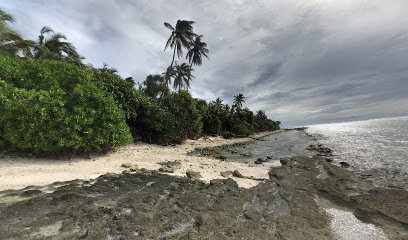
ކުޅި
Explore the enchanting Mangroves of Hithadhoo, a serene natural sanctuary full of rich biodiversity and stunning landscapes in the heart of the Maldives.
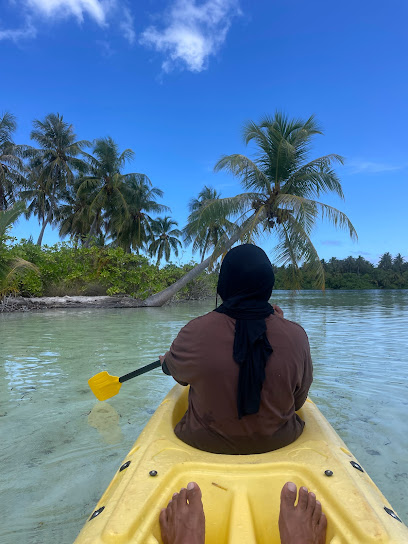
Beach
Experience the untouched beauty of Maavah Beach in the Maldives, where soft sands meet azure waters for the ultimate tropical getaway.
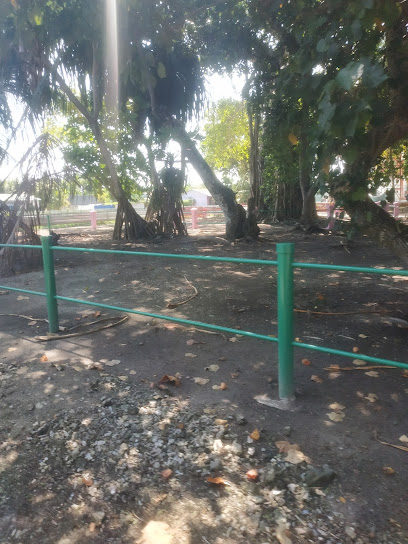
Beys Kulhi/ mud lake
Experience the tranquil beauty of Beys Kulhi, a hidden mud lake in Kunahandhoo, offering serene landscapes and a connection with nature.
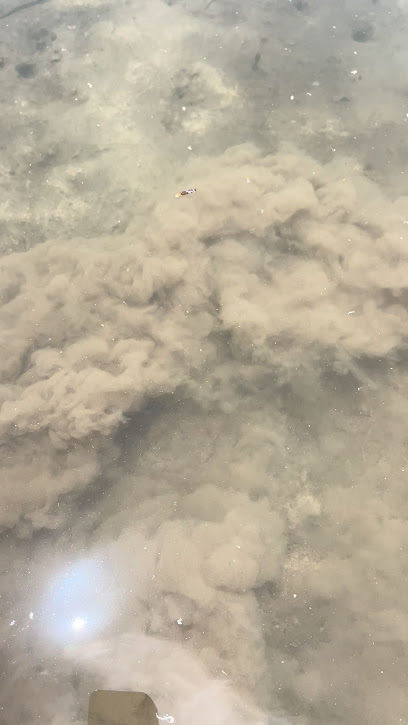
Bodahuraa Kulhi
Discover the serene beauty of Bodahuraa Kulhi, a natural oasis in Kunahandhoo, Maldives, perfect for relaxation and nature exploration.
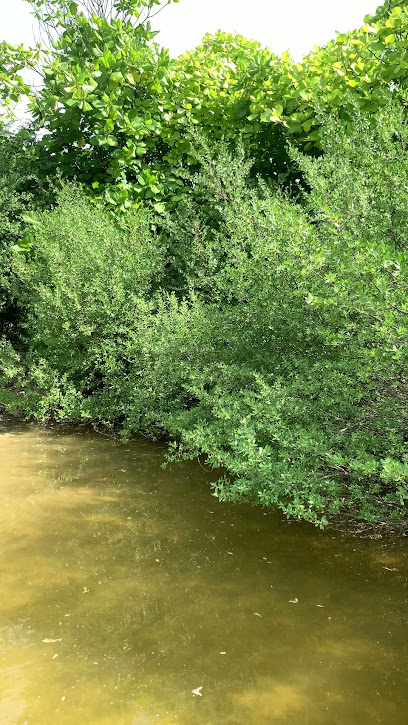
Outreef surf point
Discover Outreef Surf Point in Fonadhoo, Maldives - a surfer's haven with perfect waves, stunning views, and a vibrant local culture.

Reethi Haa
Experience the untouched beauty of Reethi Haa, a serene tourist attraction in the Maldives, perfect for relaxation and adventure.
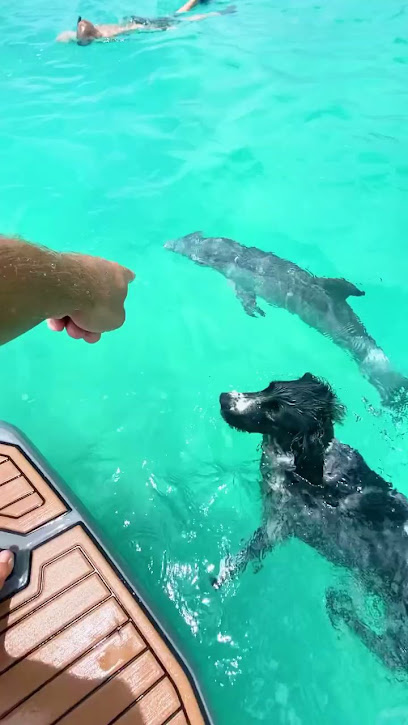
Rihaakuru Gulhi
Experience the untouched beauty and tranquility of Rihaakuru Gulhi, a hidden gem in the Maldives perfect for relaxation and exploration.

Essential places to dine
Mr.Octopus - Your holiday Chef
Experience the vibrant flavors of Maldives at Mr. Octopus - Your Holiday Chef on Kaani Beach.
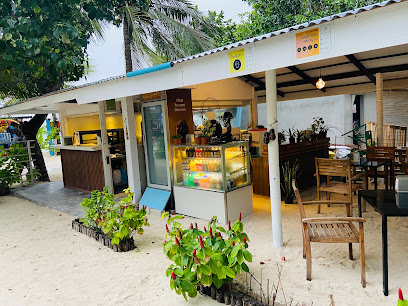
Navio restaurant
Discover Maldivian culinary delights at Navio Restaurant in Maafushi—where fresh seafood meets stunning ocean views.
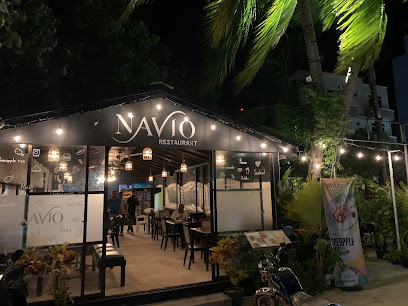
Moonlight - FOOD . DRINKS . SHISHA
Experience culinary delight at Moonlight - your go-to restaurant and lounge in Maafushi, Maldives with exquisite food, drinks & shisha.
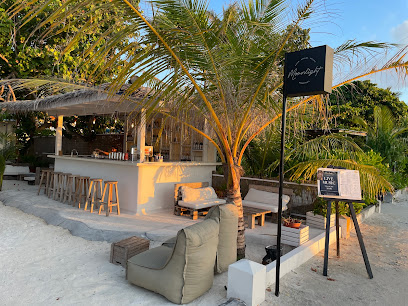
Hot Bite
Experience authentic Maldivian cuisine at Hot Bite, a vibrant restaurant & café in Maafushi offering delightful dishes & warm hospitality.
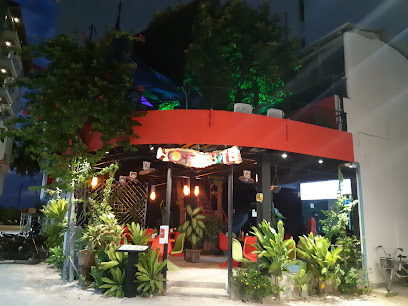
Hiyala Mariyaad Cafe'
Discover delicious Maldivian cuisine at Hiyala Mariyaad Cafe', where every meal tells a story amidst breathtaking island views.
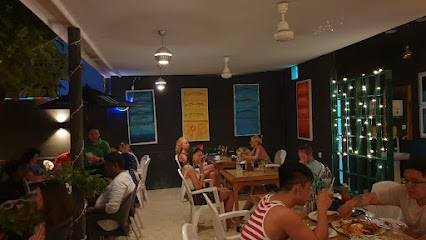
MELON RESTAURANT by Maladiwa
Discover the exquisite flavors of Maldives at Melon Restaurant in Maafushi - where culinary excellence meets tropical charm.
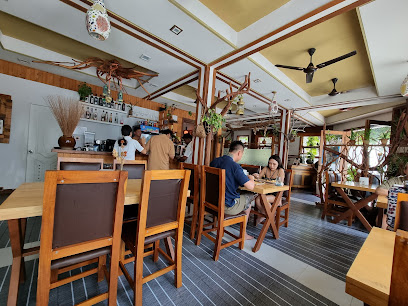
Semili's Restaurant Maafushi
Experience authentic Maldivian cuisine at Semili's Restaurant in Maafushi—where family-friendly dining meets vibrant flavors.
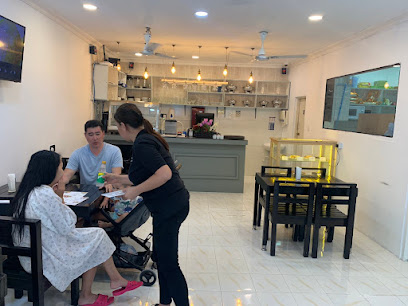
Palm Cafe
Discover authentic Maldivian cuisine at Palm Cafe in Maafushi – where every meal is a taste of paradise!
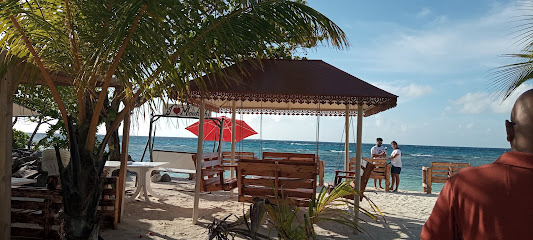
SULTAN MAHAL Restaurant
Discover the authentic taste of Maldives at Sultan Mahal Restaurant in Maafushi – where every dish tells a story.
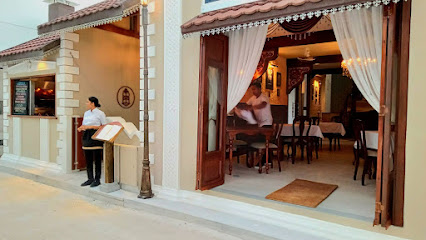
Stingray Cafe
Discover authentic Maldivian cuisine at Stingray Cafe in Maafushi - where fresh seafood meets tropical ambiance.
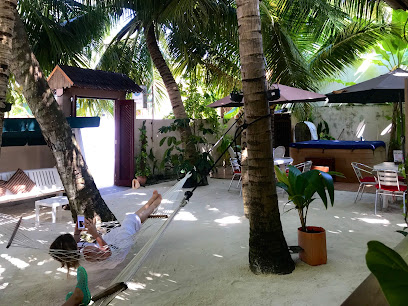
Caviar Cafe and Restaurant
Discover delightful flavors at Caviar Cafe and Restaurant in Maafushi - where local meets international cuisine in a cozy setting.
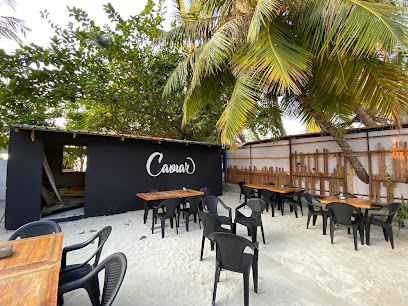
Salmonia Seafood Restaurant
Discover the freshest seafood delights at Salmonia Seafood Restaurant in Maafushi - where ocean flavors meet island hospitality.
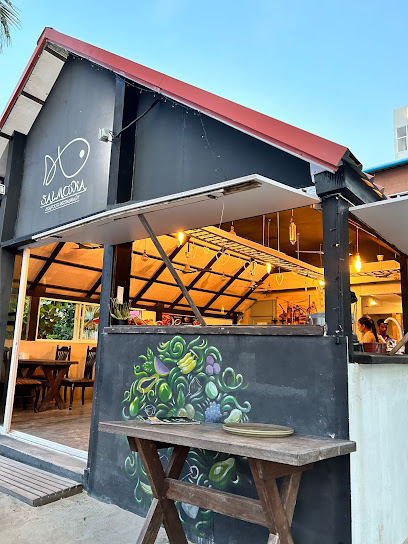
Aveli Restaurant
Experience authentic Maldivian cuisine at Aveli Restaurant in Maafushi - where every meal tells a story.
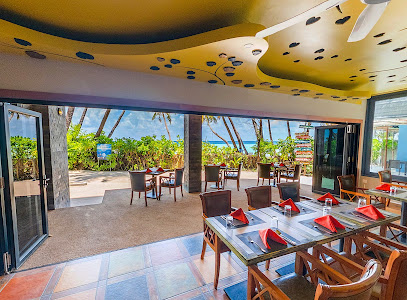
Blunch Restaurant
Discover culinary bliss at Blunch Restaurant in Maafushi - where every meal is a celebration of flavors amidst tropical beauty.
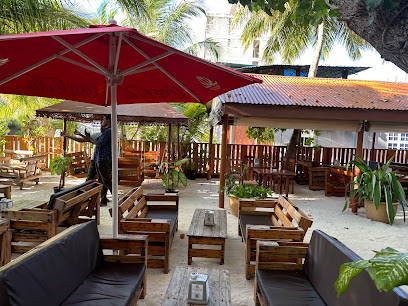
Sunrise Beach Restaurant
Experience exquisite dining at Sunrise Beach Restaurant in Maafushi - where local flavors meet breathtaking ocean views.
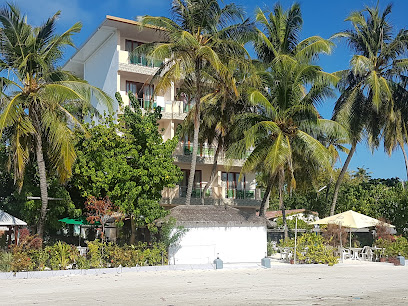
Markets, malls and hidden boutiques
PINPOINT
Explore PINPOINT in Hithadhoo for a unique shopping experience blending local culture with contemporary styles.
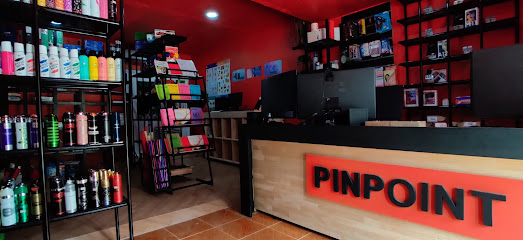
U & V Mart
Explore U & V Mart in Fonadhoo for an unforgettable shopping experience filled with local treasures and unique finds in the Maldives.
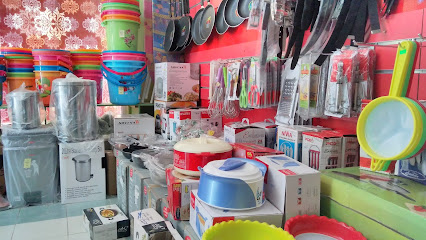
Fenhiri
Explore Fenhiri, Hithadhoo's vibrant outlet mall, for an unforgettable shopping experience with local charm and global brands.
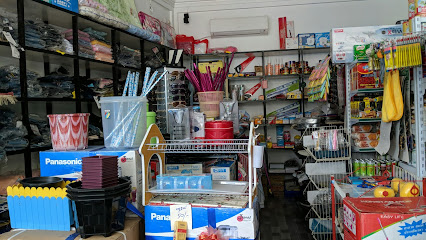
Shabnameee Shop
Discover the essence of Maldivian culture at Shabnameee Shop, a vibrant market for unique crafts and local treasures in Fonadhoo.
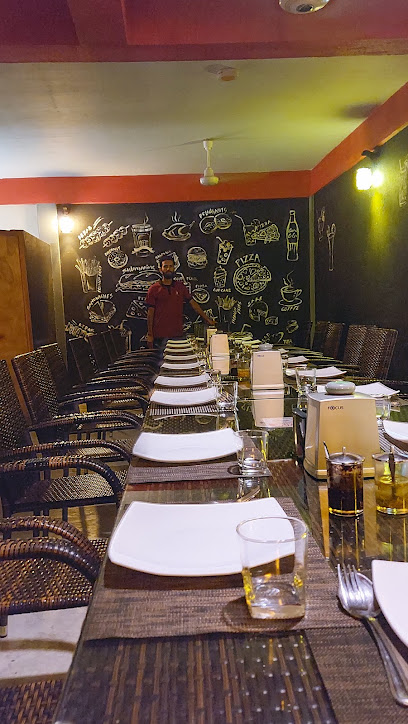
Shaaneez Shopping Center
Explore the vibrant Shaaneez Shopping Center in Fonadhoo, Maldives - a blend of local charm and modern shopping experience awaits every visitor.

Crocus
Discover the best of local culture and shopping at Crocus, Dhanbidhoo's vibrant store featuring unique products and authentic Maldivian crafts.

Mavani Mart
Discover the authentic local shopping experience at Mavani Mart in Hithadhoo, where every product tells a story.

Bella
Explore Bella in Hithadhoo for unique Maldivian souvenirs and a taste of local culture in a charming shopping atmosphere.
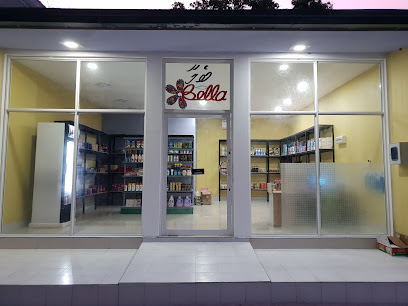
Curvy Que
Explore Curvy Que in Fonadhoo for unique clothing that blends local charm with contemporary flair, perfect for stylish souvenirs.

Binhima Store
Explore the vibrant Binhima Store in Kunahandhoo for local crafts, souvenirs, and an immersive shopping experience in the Maldives.
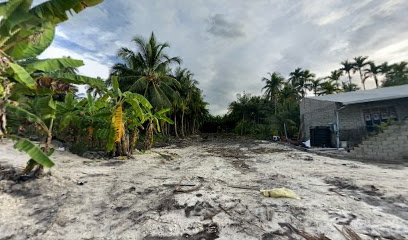
Maavina Point 2
Explore the vibrant offerings of Maavina Point 2, your go-to general store in Kunahandhoo for unique souvenirs and local essentials.
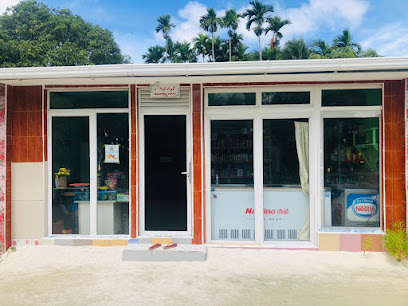
Kuvva Store
Explore Kuvva Store in Hithadhoo for an unforgettable shopping experience filled with local crafts and Maldivian culture.

Niam (Thaufeeq fihaara)
Explore Niam (Thaufeeq fihaara) in Maavah, Maldives - a vibrant shopping mall blending local culture with international retail experiences.
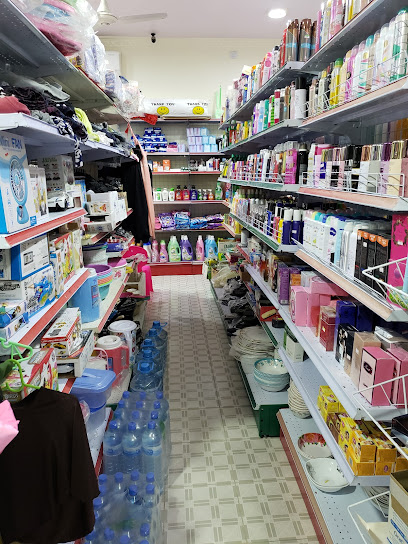
TENSTAR TRADERS
Immerse yourself in the shopping paradise of Tenstar Traders, where local culture meets international brands in the heart of Maavah.
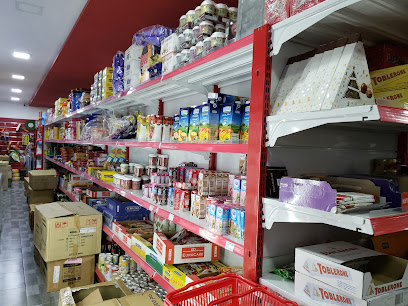
Vaadhee Plus
Explore Hithadhoo's local culture at Vaadhee Plus, where unique Maldivian products and warm hospitality await every visitor.

Essential bars & hidden hideouts
Moonlight - FOOD . DRINKS . SHISHA
Experience the vibrant flavors and enchanting atmosphere at Moonlight, the premier dining destination in the Maldives, perfect for food, drinks, and shisha.
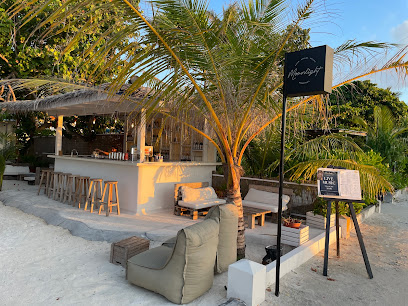
Disfruta
Discover the vibrant atmosphere of Disfruta Bar in Maafushi, where refreshing drinks and stunning beach views await!
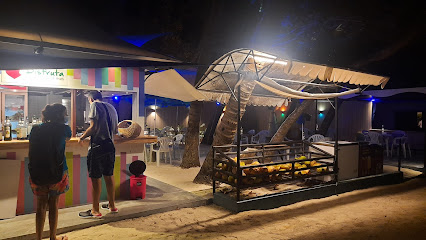
Cool Quench Restaurant
Experience culinary bliss at Cool Quench Restaurant, where local flavors meet international cuisine in the heart of L.Maavah.
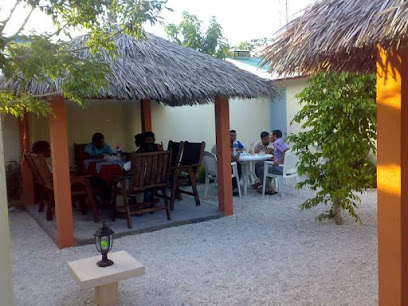
Relax Zone
Experience the flavors of the Maldives in a serene setting at Relax Zone, a perfect dining spot for tourists seeking tranquility.
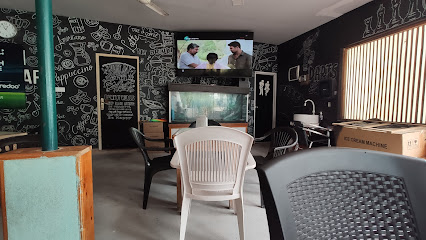
Salt Vibes Restaurant
Experience the authentic flavors of the Maldives at Salt Vibes Restaurant in Maafushi, where fresh seafood meets local culinary traditions.
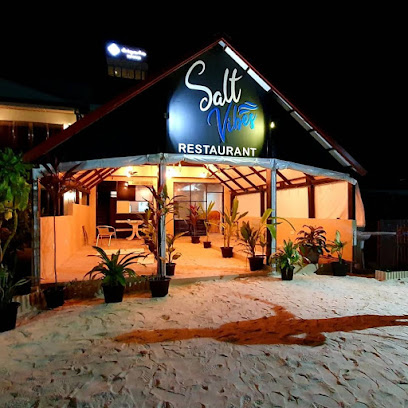
Kaage'
Savor the authentic flavors of the Maldives at Kaage', a culinary treasure in Kunahandhoo offering fresh seafood and local specialties.
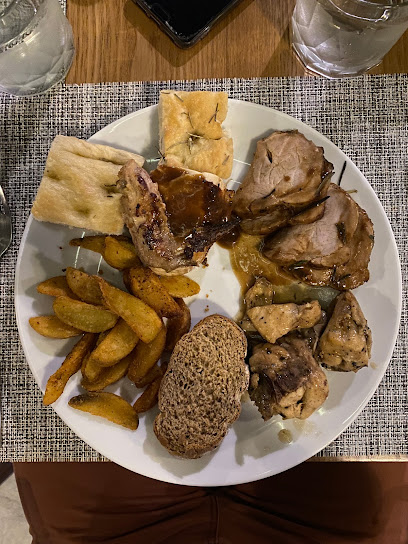
Bandharu Kada
Discover the authentic flavors of the Maldives at Bandharu Kada, a culinary gem in Kunahandhoo offering an unforgettable dining experience.
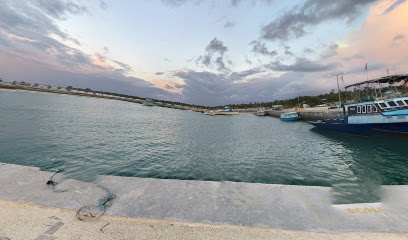
Blossom Cafe
Experience the authentic flavors of the Maldives at Blossom Cafe, a charming restaurant in Maamendhoo offering a delightful taste of local cuisine.
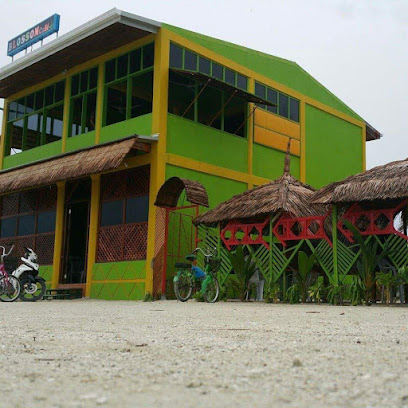
Dhirun'Bar
Discover Dhirun'Bar, a serene bar in Kunahandhoo offering refreshing drinks and a relaxing atmosphere amidst the beauty of the Maldives.

Sky Light Cafe
Discover Sky Light Cafe in Maavah: A family-friendly gem offering delicious meals and a welcoming atmosphere for all ages.
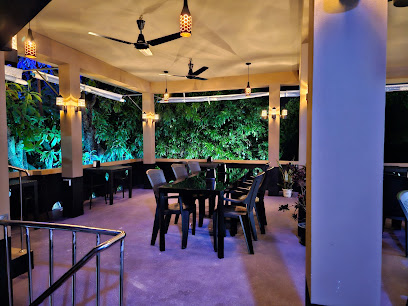
Sun Deck
Indulge in a culinary experience at Sun Deck, where stunning views and exquisite flavors of the Maldives await you.
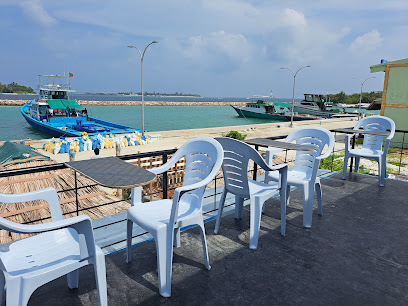
Harbour Club
Experience a delightful fusion of local and international flavors at Harbour Club, a must-visit dining spot in Maavah, Maldives.
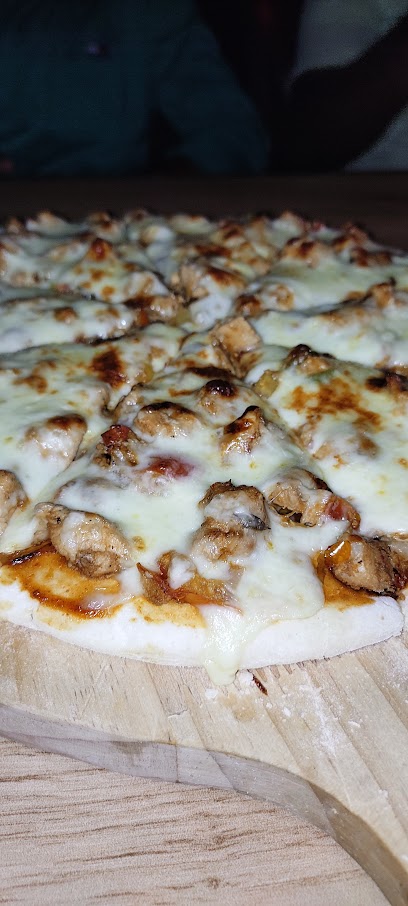
Kin'bi Lounge
Discover tranquility at Kin'bi Lounge in Fonadhoo, your perfect retreat for refreshing drinks and relaxation amidst paradise.
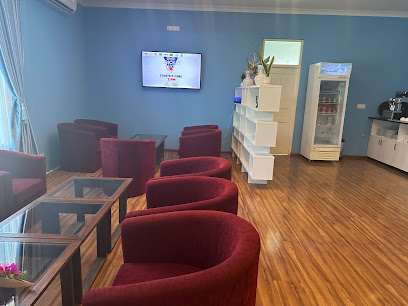
Ko'Bar
Enjoy a lively night out at Ko'Bar in Kunahandhoo, where refreshing cocktails and great company await every traveler.

Local Phrases
-
- Helloދުވަސް
[Dhivehi] - Goodbyeމިދަށް
[Mithaadh] - Yesއާ
[Ae] - Noނަން
[Nan] - Please/You're welcomeއައް
[Aa] - Thank youޝަވާން
[Shukuriyyaan] - Excuse me/Sorryމިތަށް
[Mithadh] - How are you?ކުރުޖާ?
[Kurumaa?] - Fine. And you?ކުރުޖާ. އައް?
[Kurumaa. Aa?] - Do you speak English?އެހީ ކޮޅާކީ?
[Aehi Ingilish?] - I don't understandމިތަށް
[Mithadh]
- Helloދުވަސް
-
- I'd like to see the menu, pleaseމިއަޑުމައި ފަރުކަނޑިވޭ
[Miadhumaai farukandakee] - I don't eat meatމިއަޑުމައި އަނބެވޭ
[Miadhumaai anbeey] - Cheers!ކިޝުއިން
[Kihini] - I would like to pay, pleaseމިއަޑުމައި ޕަގަސަވޭ
[Miadhumaai fagassaa]
- I'd like to see the menu, pleaseމިއަޑުމައި ފަރުކަނޑިވޭ
-
- Help!އާއިއާ
[Aiyaa] - Go away!ކަލުނަ
[Kaluva] - Call the Police!ޕޮލިސް ކިއެވޭ
[Poalisee kiyaavai] - Call a doctor!ޑޯކިޓޯވޭ
[Doktoru kiyaavai] - I'm lostމިއަޑުމައި ސަންކަކެވޭ
[Miadhumaai sanekaa] - I'm illމިއަޑުމައި އިލްލެވޭ
[Miadhumaai illee]
- Help!އާއިއާ
-
- I'd like to buy...މިއަޑުމައި ދިބަލާ
[Miadhumaai fibaala] - I'm just lookingމިއަޑުމައި ބަލޭބަލާ
[Miadhumaai balibaala] - How much is it?ކިބު ބަލެވޭ?
[Ki bulee?] - That's too expensiveމިއަޑުމައި ބަލެވޭ
[Miadhumaai bulee] - Can you lower the price?މިއަޑުމައި ދިގަސަވޭ
[Miadhumaai fagassaa]
- I'd like to buy...މިއަޑުމައި ދިބަލާ
-
- What time is it?ކުރުޖާ ކިއެވޭ?
[Kurumaa kiyaavai?] - It's one o'clockއިނބި އޯކޯހޭ
[Inbi ococaa] - Half past (10)އަނބި ޕަސްޓަސް ކޮޅާކީ
[Anbi pasdhaa kihini] - Morningމަބައި
[Maubaa] - Afternoonއަރަބައި
[Araubaa] - Eveningއެވުރައި
[Evaraa] - Yesterdayއެންސާ
[Enaa] - Todayމިއަޑުމައި
[Miadhumaai] - Tomorrowމިޖިނާ
[Miyaanaa] - 1އާތި
[Aadhu] - 2ދިވި
[Dhivu] - 3ތަނި
[Thanu] - 4ފަސި
[Fadhi] - 5މަސް
[Mas] - 6މަމި
[Mamaa] - 7ޖައި
[Yaa] - 8ރަޖި
[Raadhi] - 9ނަސި
[Nadhi] - 10ކިދި
[Kihivu]
- What time is it?ކުރުޖާ ކިއެވޭ?
-
- Where's a/the...?ކިރުޖާ ... އައިވޭ?
[Kurumaa ... aaiyaa?] - What's the address?ކިރުޖާ އެޑޭކަނޑިވޭ?
[Kurumaa edhankandakee?] - Can you show me (on the map)?މިއަޑުމައި އޮޓޯކަނޑިވޭ
[Miadhumaai oadhandakee?] - When's the next (bus)?އިތައްޑަނޑި
[Injandakee] - A ticket (to ....)އާ ތިކެޓަނޑިވޭ
[Aa fikendakee]
- Where's a/the...?ކިރުޖާ ... އައިވޭ?
History of Maafushi
-
Maafushi, like much of the Maldives, was first settled by people from South India and Sri Lanka. The island's history dates back several centuries, with its early inhabitants relying on fishing and coconut cultivation for survival.
-
In the mid-12th century, the Maldives, including Maafushi, converted to Islam under the influence of Arab traders. This significant shift in religious beliefs brought about changes in architecture, culture, and daily life, which are still evident today.
-
The Maldives experienced periods of colonial influence from the Portuguese, Dutch, and British. Maafushi, as part of the archipelago, saw its fair share of these influences, which impacted trade, governance, and social structures.
-
One of the most notable aspects of Maafushi's history is the establishment of a prison on the island. Maafushi Prison has been a central facility for the Maldivian penal system and has played a significant role in the island's identity and economy.
-
In recent decades, Maafushi has transformed into a hub for budget tourism. The island's proximity to the capital, Malé, and its beautiful beaches have made it a popular destination for international travelers. The development of guesthouses and tourism infrastructure has significantly altered the local economy and lifestyle.
-
The Indian Ocean tsunami of 2004 had a profound impact on Maafushi. The island suffered significant damage, but the resilience of its residents and aid from international organizations facilitated a remarkable recovery, highlighting the community's strength and solidarity.
-
Maafushi is known for its vibrant cultural festivals, such as Eid celebrations and National Day events. These occasions showcase traditional Maldivian music, dance, and cuisine, offering visitors a glimpse into the island's rich cultural heritage.
Maafushi Essentials
-
Maafushi is located in the Kaafu Atoll, approximately 27 kilometers south of the Maldivian capital, Malé. The most common way to reach Maafushi is by taking a speedboat transfer from Malé's Velana International Airport, which takes about 30-45 minutes. Public ferries also operate between Malé and Maafushi, but they are less frequent and take about 90 minutes. Private speedboat charters are another option for a more personalized service.
-
Maafushi is a small island, and most attractions are within walking distance. For exploring the island, bicycles are a popular choice and can be rented from local shops. There are also golf carts available for hire, which can be a convenient way to get around. For trips to other islands or excursions, speedboats and ferries are the primary modes of transportation.
-
The official currency of the Maldives is the Maldivian Rufiyaa (MVR). However, US dollars are widely accepted in Maafushi. Credit cards are commonly used in hotels, restaurants, and larger shops. It is advisable to carry some cash for smaller purchases and local markets. ATMs are available on the island, but it is a good idea to withdraw sufficient funds before arriving.
-
Maafushi is generally a safe destination for tourists. However, it is always advisable to take standard safety precautions. Avoid walking alone late at night and keep an eye on your belongings in crowded places. Petty theft can occur, so be vigilant with your valuables. There are no specific high-crime areas targeting tourists, but it is best to stay aware of your surroundings.
-
In case of emergency, dial 119 for police assistance. Maafushi has a small medical facility for basic healthcare needs, but for serious medical emergencies, patients are usually transferred to Malé. It is highly recommended to have travel insurance that covers medical emergencies. Pharmacies are available on the island for over-the-counter medications.
-
Fashion: Do dress modestly when in public areas, especially outside resorts. Swimwear is acceptable on the beach but should not be worn in public streets. Religion: Do respect the local Islamic customs. During prayer times, avoid loud activities and dress conservatively. Public Transport: Do be punctual when using public ferries as they follow strict schedules. Don't eat or drink openly during the month of Ramadan. Greetings: Do greet locals with a smile and a nod. A simple 'Hello' or 'Assalamu Alaikum' is appreciated. Eating & Drinking: Do try local Maldivian dishes and accept food offerings graciously. Don't refuse hospitality as it is considered impolite.
-
To experience Maafushi like a local, visit the local markets and eat at small, family-run restaurants. Engage with the locals, who are friendly and often willing to share stories about their island. Participate in local activities such as fishing trips, snorkeling, and traditional Bodu Beru (drum) performances. Don’t miss the chance to explore the sandbanks and nearby uninhabited islands for a unique and secluded experience.
Trending Landmark in Maafushi
Nearby Cities to Maafushi
-
Things To Do in Dhigurah
-
Things To Do in Fulidhoo
-
Things To Do in Guraidhoo
-
Things To Do in Malé
-
Things To Do in Hulhumalé
-
Things To Do in Ukulhas
-
Things To Do in Huraa
-
Things To Do in Thulusdhoo
-
Things To Do in Thoddoo
-
Things To Do in Kanyakumari
-
Things To Do in Trivandrum
-
Things To Do in Hikkaduwa
-
Things To Do in Galle
-
Things To Do in Unawatuna
-
Things To Do in Bentota











